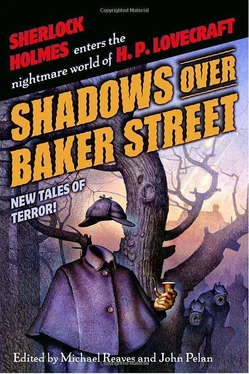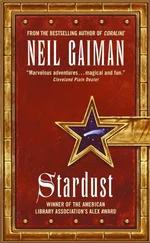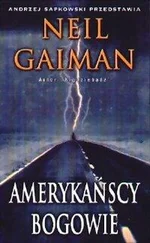“Now, Watson,” Holmes hissed. “We must hurry.”
Without looking back, Holmes rounded the corner and stopped. I came up short behind him and stared over his shoulder.
Aaron Silverman was shoving Michael Adcott toward the door of the cell frantically, cursing with each breath, fighting to avoid the other’s flailing arms. Adcott’s hands were clasped to Silverman’s head, fingers twined in his thin, wispy hair, ripping, then gripping again, and ripping more, tufts drifting about the two in a slow-motion counterpoint to their struggle.
“Get in that cell, damn you,” Silverman screeched.
Adcott either didn’t hear the words or ignored them. Backpedaling, he rammed Silverman into the stone wall, spun to the side, and began slamming his own head into the stone with such force it made me sick to watch. Silverman, momentarily stunned, took a step toward Adcott, then seemed to think better of it. He reached into a pocket and pulled out a wrinkled sheet of paper. With trembling voice, he began to read, or, at least I believe he was reading. The words were unfamiliar to me, and his entire frame was shaking with such frustrated rage that he couldn’t hold the paper still enough to read.
Adcott stilled, just for a moment. The man turned toward Silverman, who stood between Holmes, myself, and Adcott, providing a face-on view. To the day of my own death—may it be more lasting and complete than poor Michael’s—I will never shake the image of those eyes from my mind. They flared with inner light so intense that I could imagine worlds within, arms flailing and voices crying out for salvation. Those eyes were windows straight to hell, and in that second, they burned full force into the soul of Aaron Silverman.
Silverman began to back away. He tried to continue the chant, but the words failed him, and his voice faltered, then fell silent. Adcott was moving with quick purposeful strides that slipped from a walk to a full sprint in seconds, propelling his slight frame with alarming speed toward his tormentor. The madness of moments before had blossomed into an intense concentration of anger.
“My God,” I whispered.
Adcott hit Silverman at a full run. One of Michael’s hands gripped the other man by the throat and drove him backward into the stone with a sickening crunch. Silverman tried to speak, but no words or air made it past the iron grip at his throat. His legs buckled, and as Adcott continued to drive forward, squeezing ever harder, Aaron Silverman fell to his knees, eyes bulging.
In a voice so clear and pure that it washed over the scene like the water of a mountain stream on a flame, Adcott spoke. He spoke three short words, and as he spoke them, Silverman struggled a final time, eyes widening farther, if that was possible, and then went absolutely limp, the life crushed from his body.
Adcott staggered back. The effort of concentration had drained him, and the otherworldly rage and strength with which he’d propelled himself vanished. He turned, noticing us for the first time, and raised a hand toward Holmes, as if asking for something. Seconds later, I saw Michael Adcott die for the second time in a single week, and I nearly fainted away on the spot.
Holmes had me by the arm and headed toward the door before I had my wits fully about me, and we were out and into the waiting carriage without a word, closing and locking the doors of St. Elian’s behind us firmly. Holmes stared out into the night, and I collapsed into the seat and my own thoughts as the carriage hurried into the fog.
We were seated in Holmes’s study, sipping brandy and watching the fire that very night. Holmes was staring into the flames, not offering any explanations, and at last I’d had all I could stand of it.
“Holmes,” I said, “back in that laboratory, you said there was something we were missing. I’m familiar with Caresco’s work, and the abominations he is purported to have created. I have heard that he managed to reverse aging in some subjects, though at the cost of the mind—this is beyond me. I never heard that he had cheated death, and in any case, Adcott showed none of the madness reported of the earlier experiments. A great number of very learned men have pored over the bits and pieces that remain of his notes—they found the research to be an abomination, and the process beyond repair. Was Silverman a mad genius?”
“He was not,” Holmes replied, turning to me at last, steepling his fingers and taking a long breath. “Aaron Silverman was a Jew.”
I stared at my friend, wondering if something in the night’s business had addled his brains. He returned my gaze with his usual frank, half-amused expression firmly in place. I waited, and, finally, cracked.
“What in the world,” I asked slowly, “can that possibly have to do with this mess?”
For the first time since we’d left that accursed asylum, Holmes smiled.
“How much do you know of Jewish history?” he asked. I shrugged, and he continued. “There are legends,” he said. “Legends that trail back to the Holy Land itself, and that are known to only a select few. When you first spoke to me, I was nearly certain that Adcott must have a twin that no one had been aware of, or a cousin who bore a striking resemblance to the dead man whom they were trying to pass off as Adcott to win the funds from the tontine. There were obvious answers, but very quickly, the obvious answers caved in, one by one.
“I then began to explore the less obvious, and there was something that bothered me from the start. Silverman’s name. I knew it was familiar to me, but Aaron is hardly an uncommon name, nor is Silverman, so I set out to see if I could find what it was that itched at my mind.
“My search led me to the local temple, and the rabbi, an old friend, was very helpful. He remembered the name of Aaron Silverman immediately, but the Silverman he remembered had been dead for many years. Silverman was a rabbi, or had been. He migrated to London about fifty years ago and made a home here, but even among his fellows he was shunned. Rabbi Silverman had spent years in the Arabian desert, studying and fasting. He came away from that study—changed. He had scrolls and teachings that were unfamiliar to the others already settled here, scrolls dealing with legendary creatures and the Cabala. Scrolls dealing with the Golem. It is reported that he had a scrap of cloth that contained verses from al-Hazred himself, inscribed in blood. Bits of a larger work.”
“The Necronomicon ?” I asked dubiously. “That work has long been passed off as legend. And what in the world is a Golem, Holmes, and what has it to do with Michael Adcott?”
“The Golem was an instrument of revenge,” Holmes continued. “It was a creature formed of clay and brought to life by the will, faith, and rage of a rabbi. It would serve the purpose of that rage, and only the rabbi himself could control it.”
“And Adcott?” I asked, not certain I wanted the answer. “He was no man of clay.”
“No,” Holmes agreed. “He was a man brought to a sort of hellish, painful un-life by the science of Caresco Surhomme and the diabolical research of Aaron Silverman. It was the incantations, and the clay, Watson, clay from another place—another time. Clay inherited from Silverman’s father, Aaron Silverman Senior—Rabbi Silverman. The substance in that sixth vial was the very clay of which I speak. When I found a bit of it on your doorstep, I was intrigued. When I saw the vial, I was certain.
“Through the power invested in the clay, Silverman was able to exercise enough control of Adcott’s reanimated form to lead it about in public. You’ll recall that Adcott never spoke, not at your first meeting, nor at any time thereafter.”
“But he did,” I said at last. “He spoke, right at the end. What do you suppose he said, and what enabled him to do what he did?”
Читать дальше








